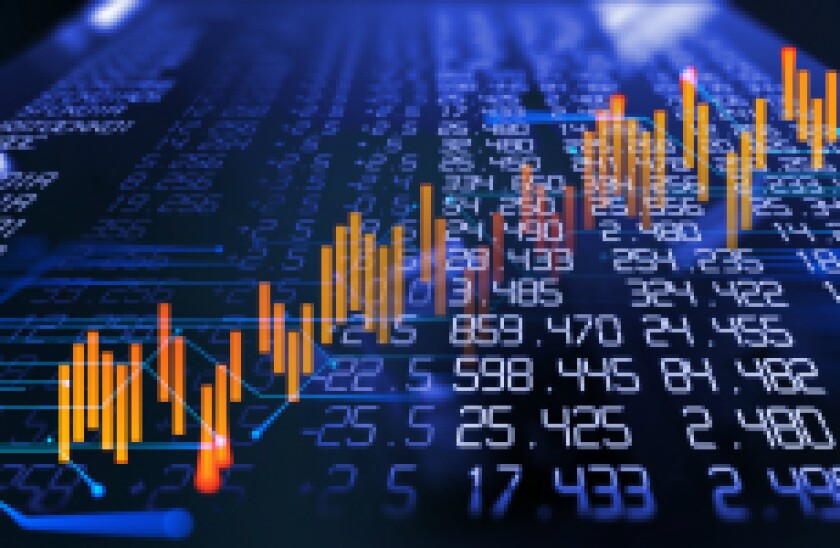US investment grade credit derivatives index CDX IG had widened 6bp on the week by Wednesday's close to move to above 80bp, its widest level since the September 20 index roll.
Meanwhile, high yield counterpart CDX HY fell 1.5 points to 102.75, equivalent to 30bp widening in spread terms, and a point below the level at which the index rolled in September.
Citi strategists in New York suggested there could be a big move in credit spreads next week regardless of the US election result, and that investors should position to take advantage of this volatility.
The US dollar fell against other major currencies as investor panic set in, but rose to an intraday peak of 19.5 against the Mexican peso on Thursday, close to its high point of the year in September.
Currency traders have linked the peso’s fortunes inversely to those of Republican candidate Donald Trump. Peso futures expiring in December and trading on the Chicago Mercantile Exchange fell to their lowest level for a month, at just over $0.05.
Opinion polls this week suggested the result of the election will be a much closer call than previously anticipated. A week ago, all US opinion polls were pointing towards Hillary Clinton being elected as the 45th US president. An October 24 opinion poll had her with 47% of the popular vote, while Donald Trump trailed well behind with only a 37% share.
That poll followed the third and final presidential debate, held at the University of Nevada, which was seen to favour Clinton, and also came soon after sexual assault allegations against Trump.
But this Wednesday, a new poll released by IBD/TIPP had both candidates on a 44% share of the vote, after the Federal Bureau of Investigation (FBI) said it would open a new enquiry into Clinton’s emails.
“2016 has been a series of shocks for markets and currencies,” said Paresh Davdra, chief executive officer of UK-based firm RationalFX. “But now that the stability represented by Clinton is no longer assured, the following week will be a tense period as global markets seek to avoid the kind of complacency shown before the Brexit vote.”
The shift in opinion polls has been registered in equity derivative implied volatility. Options on the S&P-500 index expiring the day after the election, on November 9, have risen from 11.70% to 22.39% over the past seven days, with the upsurge coming across the whole volatility surface. CBOE VIX was quoted at an intraday high of 21% on Thursday, its highest level since the UK voted to leave the European Union in the June 23 referendum.
“I really didn’t anticipate the final stretch [of the election] resulting in so much uncertainty,” said Russell Rhoads, Director of Education for the CBOE Options Institute. “The change is nothing short of amazing.”
On the CBOE there are 29 volatility indexes quoted, giving a snapshot of volatility in various traded products. On Tuesday, all the best performing volatility indexes were equity related, with the CBOE Short-term volatility index rising by over 13% and the Brazil ETF volatility index rising by over 12%.
Other volatility indexes fell, however, with the CBOE Crude oil ETF volatility index declining by over 2%.

